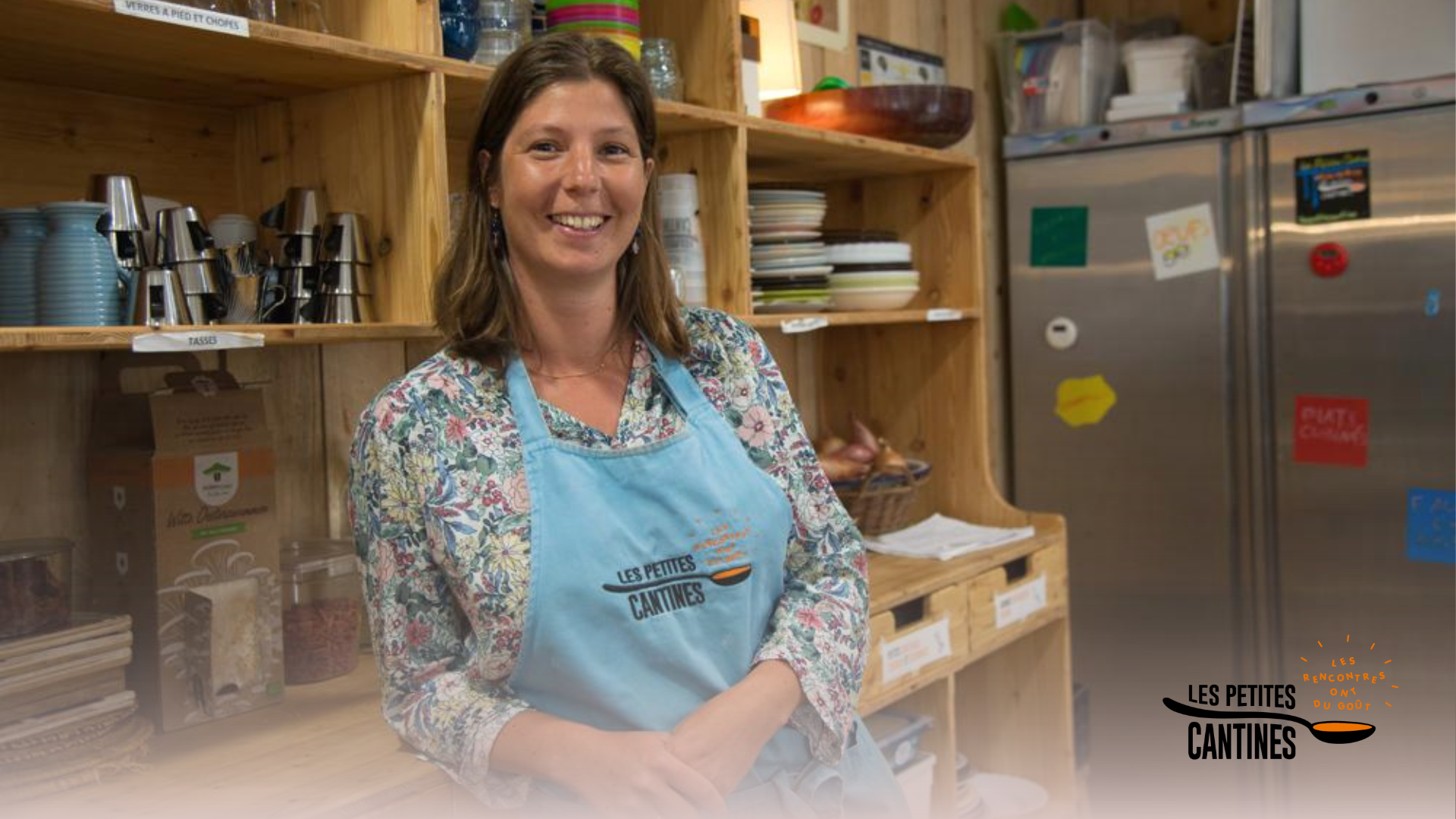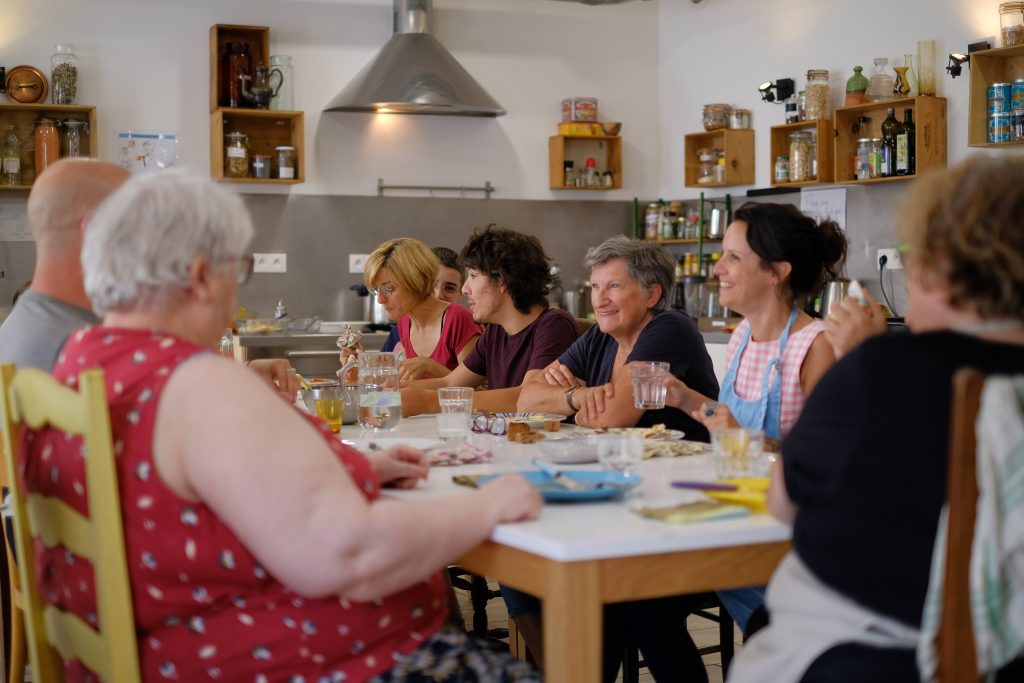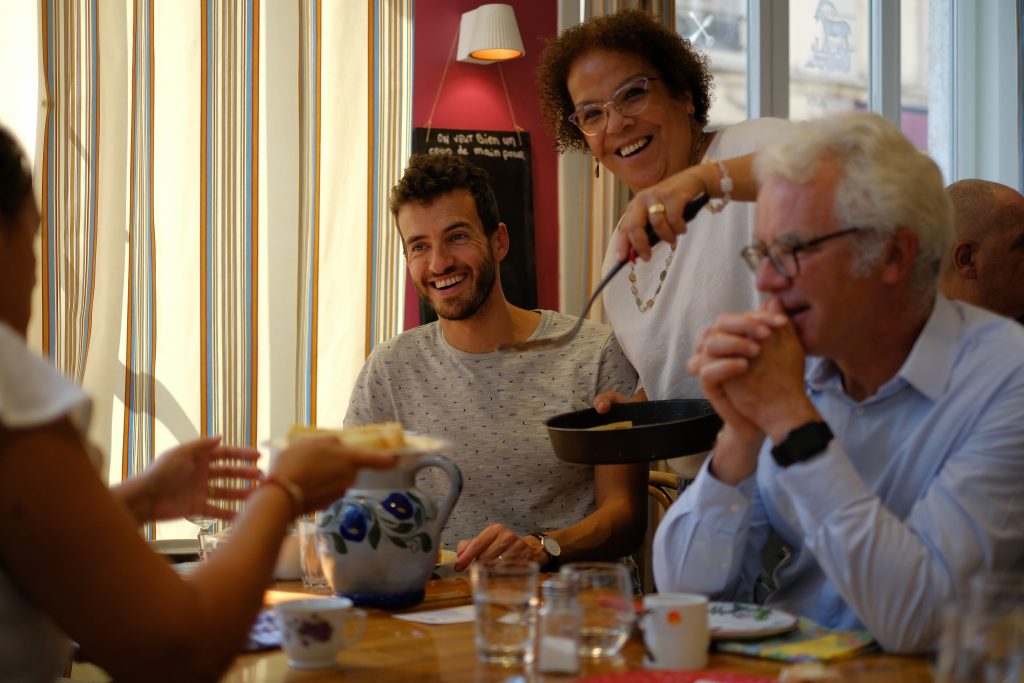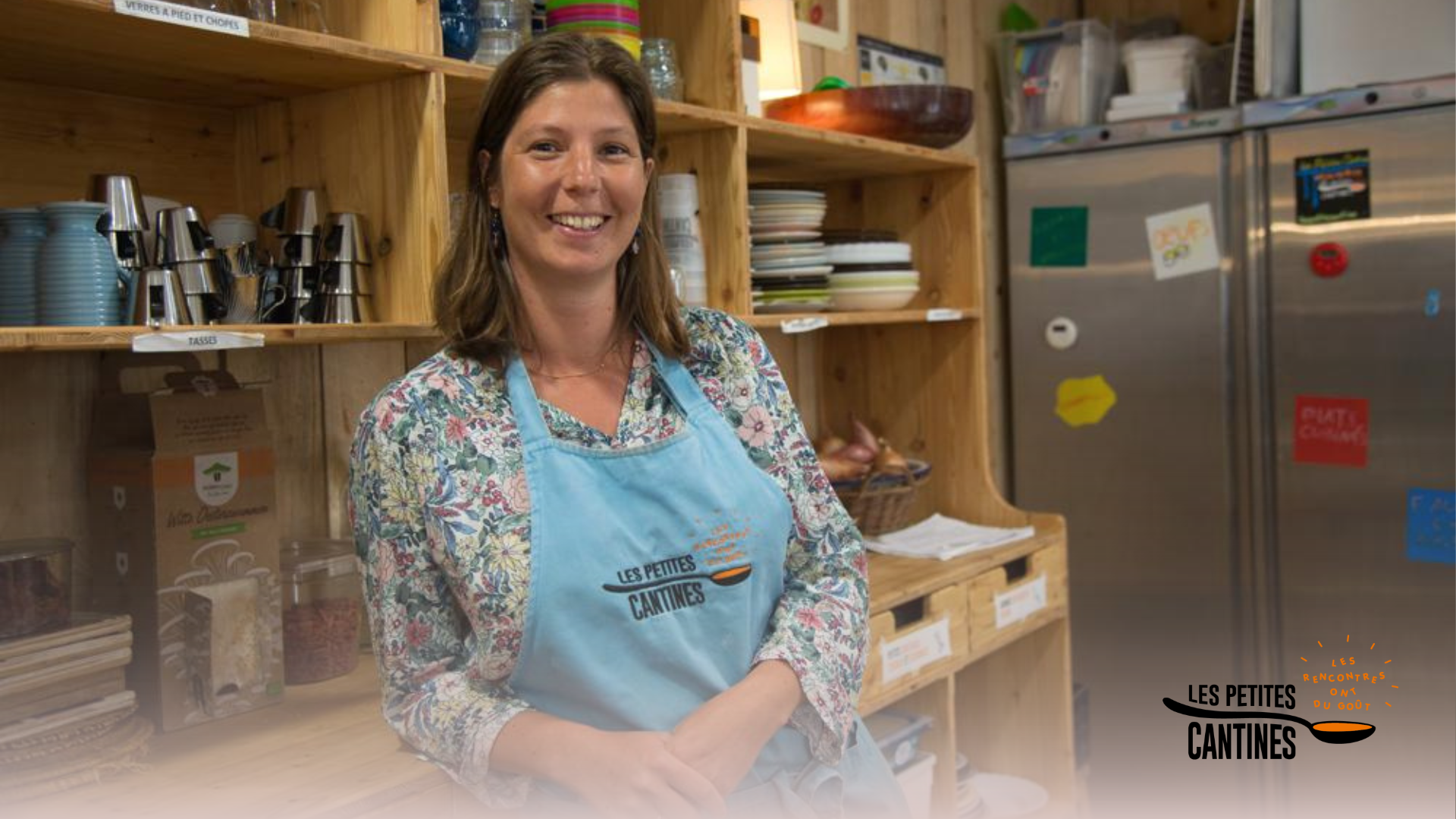After losing her husband in a car accident, Diane Dupré la Tour realized the importance of a social support network, and found that food was the key ingredient to creating one.

"We shouldn't wait for a life-changing incident to live this kind of solidarity"
Nominations for the 2024 Simone Awards are now open. Do you know a committed woman?
Diane Dupré la Tour, a 42 year old former finance journalist, is the co-founder of Les Petites Cantines, a network of restaurants that specialize in sustainable food and are open to everyone.
“We offer sustainable food, free of charge. We opened the first canteen in Lyon, and today we’re present in many French cities.”
However, the inspiration sprung from tragedy.
“I lost my husband in a car accident ten years ago,” says Diane. “This tragic event made me realize that any life-changing incident can easily put us in a vulnerable position, sometimes causing inward-looking attitudes at times when we mostly need the others. I was lucky enough to receive great support from my neighbors. It made me think that we shouldn’t wait for a life-changing incident to live this kind of solidarity.”
And so it began. With her friend Etienne Thouvenot, Diane decided to create a place that would fulfill this need to be connected to others.
“Instinctively, food appeared as the key element to facilitate encounters and create a social link. It’s a great source of resilience, because food not only answers physical needs, but it also answers emotional and relational needs.”
The decision to make the food free is a bold and interesting one.
“It enables us to welcome people from different generations and life paths. The supply relies exclusively on sustainable food with organic, local ingredients from direct supplies. We also collect unsold stocks from the neighboring organic shops. The kitchen too is participatory: those who want to can come earlier and cook together. We create opportunities to meet people we couldn’t have met otherwise. Some neighbors also offer workshops. It’s like Neighbor’s Day, every day!”

But it wasn’t all plain sailing for the Lyonnais pair. They weren’t caterers, and entering into such an industry is fraught with challenges.
“I didn’t know anything about the catering industry,” Diane admits. “I attended training sessions about hygiene and the rules of this industry. We started with ephemeral canteens in venues that people would lend to us, so we could test the impact on the neighbors. When we realized that it was a success, we started looking for our own space. The real challenge was to find available premises, with an affordable rent and the possibility to carry out work related to the industry standards. All the premises I could find were too expensive.”
This choice to become an entrepreneur at a point in Diane’s life when she had not only suffered bereavement but also quit her job while looking after three children was, she admits, an unorthodox one.
“Seen from the outside, it could sound really irrational to become an entrepreneur at this stage. But I had the feeling that it was a good time to go for it. In reality, we take a bigger risk by not following our instinct: the risk of missing the whole purpose of our own life.”
But they continued moving forward.
“Our ambition, with Etienne, was to build a non-lucrative model without having to depend on subventions: our model would rely on the free and conscious contribution of our guests. It can be really stressful to never know how much money we get at the end of every day, especially when you have salaries, rent, charges to pay. You have to learn to trust yourself. And it worked!”
Here in 2023, all the canteens are stable and built on a trusted model. Nearly 85,000 meals have been served to more than 35,000 guests since the inception six years ago of the initiative. 10 canteens are already open, and 12 are about to be launched. But there’s still a level of precariousness.
“Part of the supply depends on the collection of unsold stocks. Plus, we never really know who is going to cook. Lastly, we don’t know how many people will sit at our tables. Overall, for a project relying on gatherings, you have to accept that a good part of it is unpredictable. Our canteen managers are championing uncertainty management, and they do it with a lot of simplicity and social capacity. This is, in my opinion, a job for the future.”
It’s an admirable set up. But, fundamentally, does it work? Diane says she is able to measure that.
“We run social impact studies every two years. Today, 95% of our guests say they feel as welcome as they truly are. They become aware of their own prejudices and can more easily get rid of these biases after spending quality time with someone in particular. Two guests out of three give more trust to others and feel trusted in return. The main thing is that we foster the ability to redefine social connections and loneliness.”
But there’s more than just the social aspect. This initiative has a health dimension too.
“We also measure the impact of accessing sustainable food,” Diane continues. “82% of our guests have discovered healthy, cheap recipes in our canteens, and want to reproduce them at their home. We offer recipes made with local, organic ingredients, and ideally bulk goods to avoid too much packaging. These practices have an influence on our guests’ food behaviors, not just through our speeches but also through the experience of pleasure. The notion of savory, sensory well-being are the key to opening to others. We noticed that one guest out of two have sustainably changed their food behavior thanks to Les Petites Cantines.”


In terms of frequency, the regularity of custom goes some way to prove their success.
“25% of the guests come often, at least once a week. 50% of them come on a regular basis, once or twice a month. And the remaining 25% are people passing by, they come once or twice a year. These people are nonetheless important because they are our ambassadors. They talk about us. For the elderly, the initiative can come from their children who heard about us. They come with their parents the first time then let them come back on their own if they want to.”
Diane and company have now got to the point where they can make a forecast for their future success.
“We’re hoping that in 5 years, we can count 50 canteens within our network. This would serve approximately 100,000 guests and 100 employees. Today, we already have 30.”
But they don’t want to get too big. One of the company mantras is proximity and simplicity are the key ingredients to create social connections.
“The word “petites” means small in French and is as important as the word “canteen” in our name,” explains Diane. “To create trustworthy relationships, you can’t have complex structures. The entrepreneurial agility enables us to stay resilient, a precious quality in this society of changes.”
They would, it appears, rather be consultants who advise on future cantines run by like-minded others.
“Ideally, we would help create new networks in France, in Europe or elsewhere, to which we could transmit our knowledge. Our goal is not just having a social impact within Les Petites Cantines but also outside. We want to train companies, the hospitality industry about inviting interpersonal skills to their tables. Hannah Arendt describes the table as a space that connects us all, while maintaining a distance between each other. This distance is not an empty space since it is filled with what happens above the plate, which is the ability to speak. This is how we create unexpected encounters at Les Petites Cantines. Eating organic food on your own is not my vision of eating sustainably. For us, the aspect of sharing a meal is just as important as cooking organic, local, healthy ingredients.”
Château de Pommard chose Les Petites Cantines as one of the three winners of the 2023 Simone Awards, and Diane says she felt a collective sense of pride on hearing the news.
“It’s the reward of many teams. I’m also very grateful. In the end, the world of wine and Les Petites Cantines have more common values than you could imagine. One could think that a renowned winery like Château de Pommard would not have anything to do with an organization like Les Petites Cantines, whose goal is to encourage social connections. And yet, what connects us all here is food.”
Certainly the conviviality engendered by carefully made wine accompanying food is one of the key driving factors when making wines at Château de Pommard, and we’re thrilled to be associated with an organisation who understand the importance, at a fundamentally human level, of how the social aspect of eating and drinking helps people connect, and has done for centuries. We hope the grant will help Diane and team move forward.
“We will use it for the development of our network, to create a collective, dynamic intelligence and support our teams. The more experienced project leaders can support new projects. We just need to train them as facilitators and provide them with an updated toolbox taking into account all the regulatory constraints,” Diane says.
What piece of advice would Diane give to someone who wants to commit to an important cause?
“Don’t fight on your own. Take people with you. You will be enriched from their experiences and their sensibilities. You will learn how rewarding it is to be able to rely on others, which is something that can be hard to accept. In France, we see a lot of suffering caused by entrepreneurial failure. This is seen as a personal failure. It would be much easier if we considered success as collective, rather than individual.”
Thanks Diane, and good luck!
Diane was speaking to our Asia Senior Trade Sales Manager, Remi Marchand .




